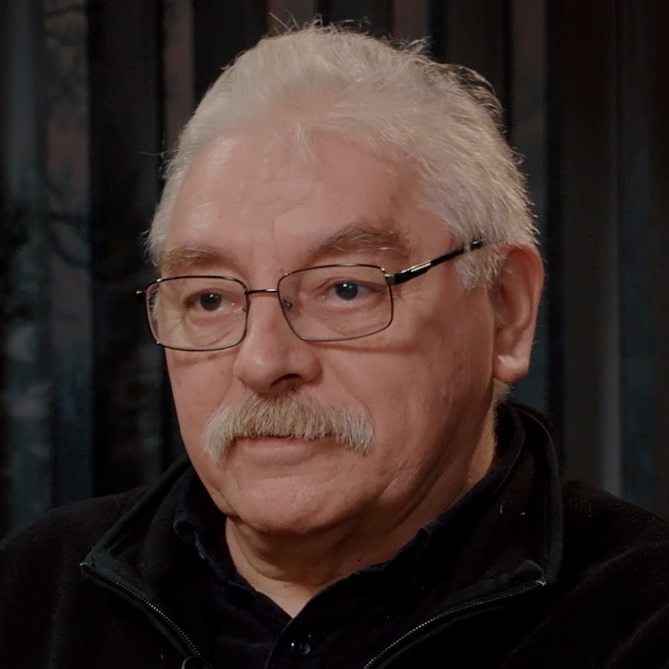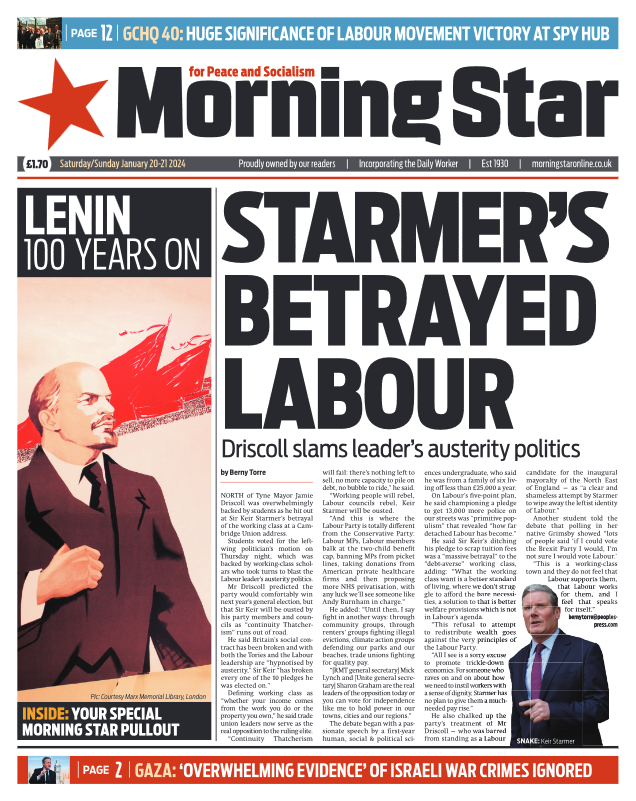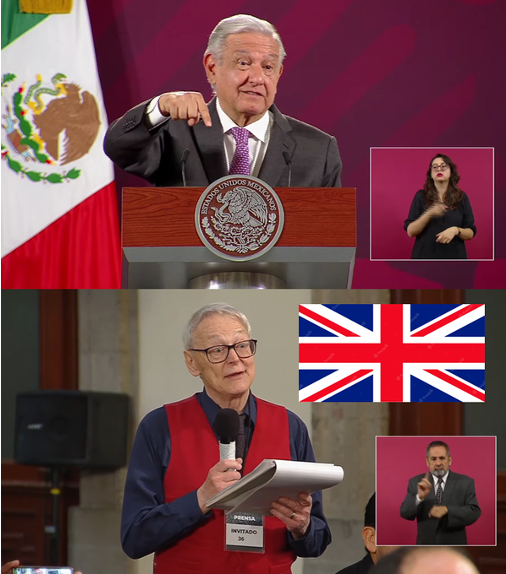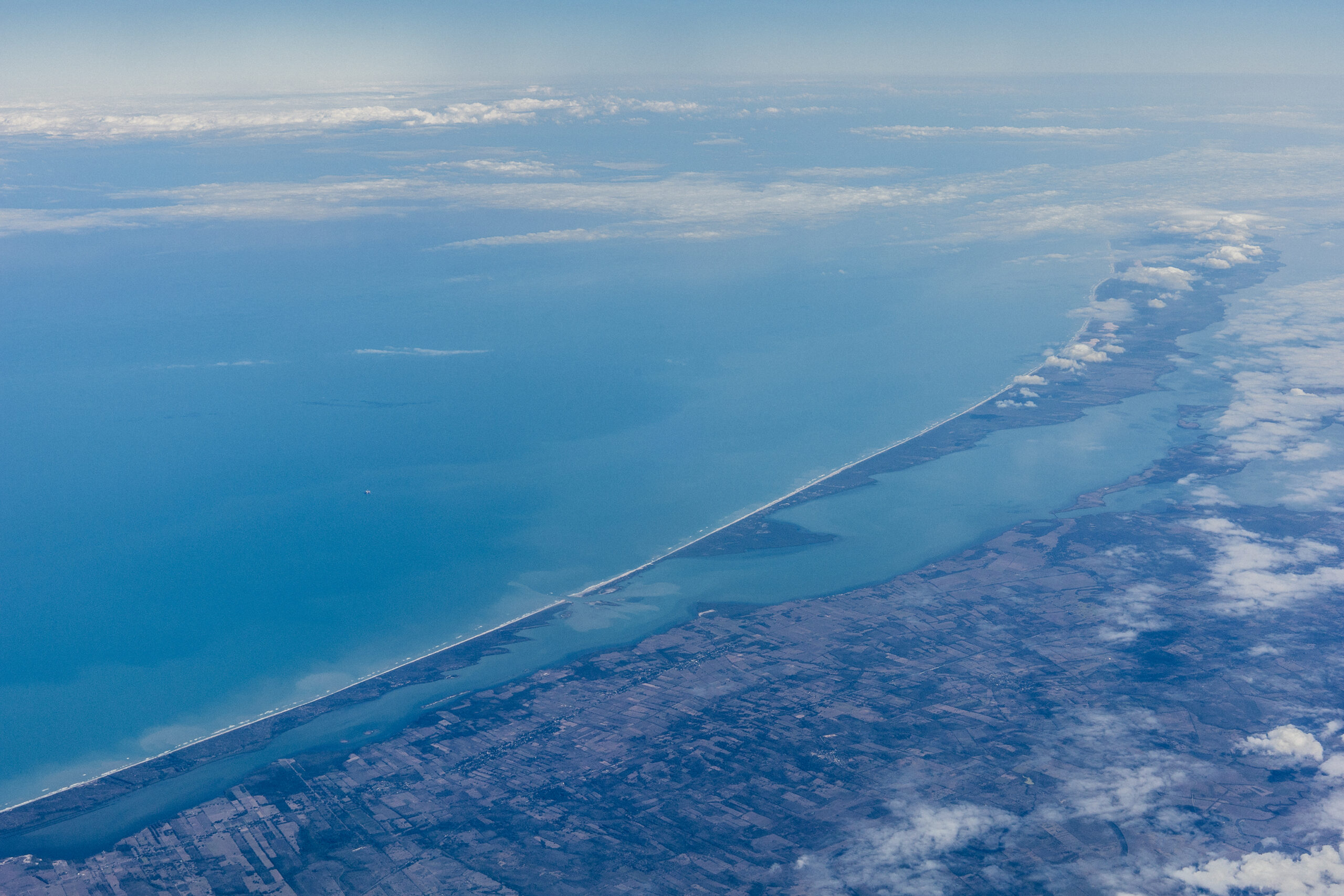Solidarity Crosses Borders – and Oceans
Mexico and the United Kingdom are over 5,000 miles apart and separated by the Atlantic Ocean. While the British Navy had no problem traversing vast distances to set up colonies around the globe, it never made it to Mexico. And Mexican migrants swim the Rio Grande, but not the Atlantic! So why are the English interested in Mexico?
The truth is, they aren’t so much.
That lack of connection could be a plus; the attitude of the British public toward Mexico, unlike in much of the US, is friendly. Francisco Dominguez and his colleagues aim to expand that positive attitude by informing them about Mexico’s left turn since AMLO won the presidency in 2018 and to enlist the UK in the defense of the progressive Morena government.
Francisco learned long ago the critical importance of cross border solidarity to counter the international right. In his native Chile, the US colluded with right-wing forces to overthrow the democratically elected leftist government of Salvador Allende. Human rights organizations with ties across the globe saved Francisco, getting him out of Chile and away from the brutal Pinochet regime.
The UK proved to be a pretty good place for a socialist to land. The working class there has a strong class identity, big unions, and its own political party, which gives them the possibility of leading the national government — as a UK MP and socialist Jeremy Corbyn did at one time.
Francisco is a founder of the new UK Mexico Solidarity Forum, and the MSP is thrilled to work in tandem with them. Together, we can grow a global movement to stand up to imperialist efforts to bring down successful governments — like Mexico’s — that govern for the working class.

What brought you to the UK? Were you already a political activist?
I was active in President Salvador Allende’s government in Chile as a trade unionist in the national health service. After the CIA-supported coup and Allende’s death in 1973, I managed to survive for six years but then had to flee. The organizations helping people like me said, “If we can get you a visa to anywhere, that’s where you’ll go!” Britain wasn’t my first choice, but they came up with a visa first.
There was a lot to get used to. Vinegar on French fries?! But I even grew to like it — the vinegar — and also what I could do here. I hadn’t gone to college in Chile, but Britain offered me a scholarship, and I got a political science degree. In 1984 I gave my first lecture at Middlesex University in London; I’ve been here ever since.
Of course, I never stopped being a political activist, a socialist. The UK has a good tradition of international solidarity campaigns, and I joined them all.
How are solidarity campaigns organized?
We found it more effective to have only one campaign per country: one for Cuba, one for Nicaragua, and so on. In contrast, the US might have 50 Cuba solidarity groups.
We have a single party on the left (and we do have a political party!), the Labor Party. The left that influences national politics does so from within this party of the working class. Post-war, the unions and the Labor Party supported the former British colonies, and they learned to discard arrogance. Instead of saying, “You should do X or Y,” they determined they should do what the people of those countries wanted.

For our international solidarity work, the question of national sovereignty is primary. It’s not whether a country is socialist or not; that criteria doesn’t make sense. Cuba is the only consistently socialist country, but if you focus narrowly on Cuba’s socialism, you’ll have three people in a phone booth; they can’t do much.
Unions are critical to our solidarity campaigns. For example, 43 national unions are affiliated with Justice for Colombia. Unions can fund actions and delegations and get our message out widely. Some support the left-wing daily paper Morning Star — every trade union headquarters gets it. When we write about Mexico in the Morning Star, as we have done and plan to do more of, it puts Mexico on the solidarity map.
You’ve been on the organizing committee for the annual Latin America solidarity conferences. Why has Mexico mostly been ignored?
This initiative began in 2005, when the “Pink Tide” of progressive governments was elected in several countries. We wanted to put our solidarity campaigns for specific nations like Cuba and Venezuela under a bigger umbrella, a single totality that is “Latin America.” They themselves have attempted to build their own economic bloc — Mercosur (Mercado Común del Sur), the Community of Latin American and Caribbean States (CELAC), the Latin American Bank — which pushes back against US and OAS neoliberal policies.
Why not much discussion about Mexico at these conferences? Mexico hasn’t had a big crisis; when a Latin American government is attacked, then we jump to defend it. Few solidarity efforts exist for stable, successful governments!
But we need one now for Mexico because its progressive character poses a threat to US interests.
At the January 2024 Latin America conference, you had a panel on Mexico. How did that go?
In the UK, we don’t need to counter false information or defend AMLO as much as you do in the US. We don’t share a border. Our imperial projects were not in Mexico. The problem is simply that people don’t know what’s happening. Any information they get is a plus.
We need to tell them about the positive changes happening in Mexico under Morena’s 4th Transformation and how, at some point, the US and its accomplices will lash back. UK progressives must be prepared to defend Mexico’s sovereignty.
On the panel, we prepared people for Mexico’s upcoming presidential election. We explained how their right wing uses popular language to win people over, how the opposition parties actually hate each other(!), and what constitutional reforms AMLO is proposing in advance of the election — to make permanent the democratic and economic reforms initiated by his government.

Recently, David Raby, with you and other colleagues, started the Mexico Solidarity Forum (MSF). What is its purpose?
Previously, Mexico solidarity work meant supporting the anti-neoliberal Zapatista movement. But we feel now that Zapatista supporters continue to use old frameworks while history has moved on. It’s time for a new Mexico solidarity effort that corresponds to what Mexico needs from allies in the current moment.
Finding your Mexico Solidarity Project and working with you is enormously important because you are in the belly of the beast. MSP and MSF can have joint initiatives across the pond; we’re already working on a joint analysis of Mexico’s opposition. Both groups will work to ensure that Mexico’s election is impeccable and is recognized as such.
Why should people in the UK be concerned about Mexico’s sovereignty and the future of the 4T?
Mexico aids our defense of Cuba. AMLO said, “Cuba should be given the Nobel Prize for resistance.” Mexico can demonstrate that Cuba’s problems are due to sanctions and not to socialism. It can also counter criticisms of Latin American countries leveled by the Western left. AMLO admonishes them to be humble. “Once you have your own socialism, then you can criticize.”
Mexico also helps our own struggle against neoliberal agendas. If Mexico succeeds in legitimizing a model that prioritizes the common people, we can apply those lessons at home.
Not only the UK should be interested in Mexico’s success. The MSP and MSF can broaden left internationalism with information and analyses for the English-speaking world — Canada, Caribbean, Africa! Currently, Latin American countries are pivoting toward Africa, a region growing in importance. I’m excited at the possibilities of expanding solidarity with Mexico across the globe.
Francisco Dominguez fled to Britain in 1979 as a political refugee from Chile’s Pinochet government. Ever since, he’s been active on Latin American issues, about which he has written and published extensively. He became a senior lecturer at Middlesex University, where he headed the Research Group on Latin America. A founding member of the Mexico Solidarity Forum, he is also a leader in the Venezuela, Cuba, Nicaragua, and other solidarity campaigns for Latin America.

